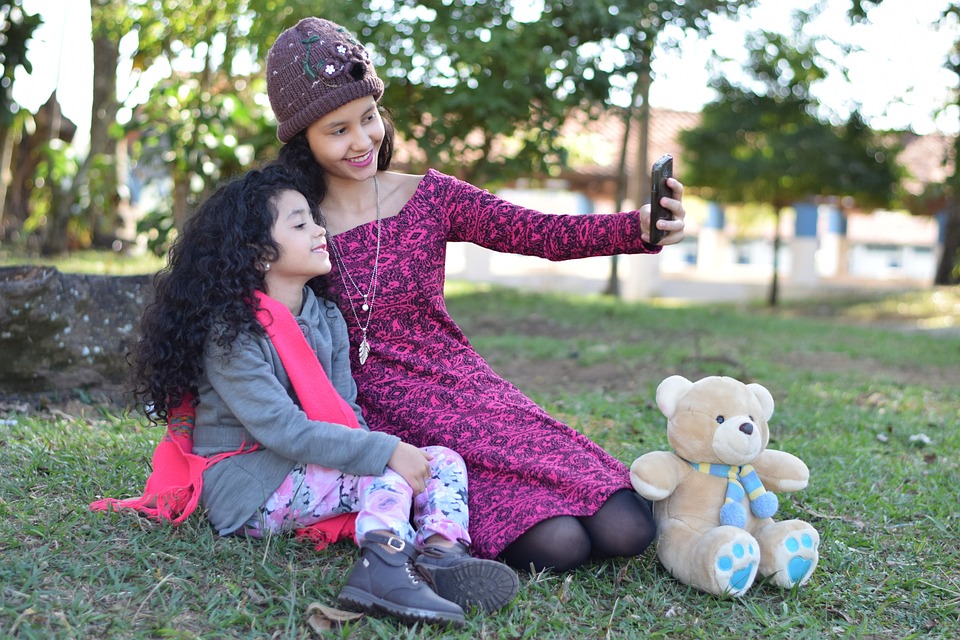We can safely say that the digital world is way greater than the real world, and social media is a big part of it.
Children are most exposed to social media accounts. Studies show that 35% of US teens constantly use at least one social media platform.
In this article, we will go over the main pros and cons of children having social media accounts.
The Positive Side
Social media offer countless opportunities for children. Let’s start with why social media accounts can benefit your children.
Communication and Socializing
As much as I hate to say it, children have more online than real-world friends in today’s digital life.
It’s positive because your kids get the opportunity to exchange thoughts and have fun conversations with children their age.
They can also find a pen pal from another country and chat with them, sharing cultural knowledge.
Knowledge, Information, and News
Social media is way quicker and often more objective than real news about all topics in the world.
It’s also a great way to expand your child’s trivial knowledge. There are a lot of educational and fun accounts that are popular among children on social media.

Embracing Their Creativity
Social media platforms are great for your children if they want to express their creativity.
For example, if your children are talented artists or musicians, they can share their passion with their friends, family, and the whole world.
Being Part of a Developing Community
The widespread social media community consists of all users on one platform (Instagram, Facebook, Twitter, etc.)
Your children being part of this community offers them the opportunity to keep up with the technological growth and be part of the fast-developing youth.
The Negative Side
As everything has a negative side, social media has it too. So, let’s get familiar with what you should look out for on social media.
Hackers and Scammers
Since social media is a huge group of people put in one space, it’s logical that there are a lot of bad guys that want to harm social media users, especially children.
Hackers often steal users’ info, while scammers tend to steal money from your cards.
Hackers and scammers can reach out to your children mostly through direct messages, posing as fake friends, family, giveaways, etc.
So, warn your children about these threats and educate them on how to deal with hackers and scammers.

· Cyberbullying
Like hackers and scammers, cyberbullies also want to harm users (often children).
But the difference is that online bullies hurt people just for the sake of it and don’t gain anything else.
Anit-bully tools like block, report, restrict, and mute are options to prevent online bullying.
Misinformation and Fake News
We mentioned above that social media is a great way to gain news and knowledge.
But, it also is a major source of fake news and misinformation. Studies show that approximately 38% of US social media users accidentally shared fake news.
So, educate your children to fact-check social media articles and news accounts.
· Source of Panic and Propaganda
This is closely linked with the fake news we talked about. Social media creates a lot of panic over things that might not even be true.
It often creates a fake and twisted image of reality that our children believe.
A lot of organizations (with a bad reputation) use social media to lure children into joining them.
These are all different political parties, religious groups, fan bases, social groups, and such.
Inappropriate Content
Often social media is an enormous source of non-child-friendly and violent content.
This can cause trauma for your children, especially if they are young. So make sure to see what accounts they follow and watch.
Health Problems
Social media can cause addiction. How often do we see teenagers everywhere with their phones in their hands?
Studies show that addiction can cause a series of health problems with vision, mental health, weight, etc.
Studies show that social media can increase the chance of your child being depressed or even having suicidal thoughts.
Lack of Focus
Social media can affect children’s concentration and school performance by attracting them to constantly check their phones.
You can prevent that by setting healthy habits about using technology and digital devices during studying.

Should I give my Child Access to Social Media?
You’ve probably wondered when is the best time to introduce social media to your child.
There are several factors that you should consider when making that decision. Let’s quickly go over them.
Age and Maturity
If you want to allow your child to have a social media account you must be sure they are responsible enough.
You can do this by actively monitoring your child’s behavior and attitude toward school and home chores.
If your child is responsible, intelligent, and independent, you can try giving them a try on social media.
Cleveland Clinic has found out that 33% of children aged 7 to 9 years have social media accounts, and approximately half of 10-12-year-olds also have accounts.
In my opinion, children should get access to social media around the age of 13-14. But you must make your conclusion according to facts and research.Your Availability to Monitor Children
If you can’t check what your child is doing on social media, then don’t allow them.
You can monitor them by actively talking about what’s new and trendy on social media.
If children are younger and starting to use social media, put parental control on their phones. You can access that in the phone’s or platform’s settings.
Communication and Education
So, you’ve decided to give your child social media. Now it’s your turn to educate them about the risks and benefits of it.
Establish basic rules and time limits that your children understand and must follow.
Review privacy policies and safety info on social media platforms with your children, making them aware of the rules on that platform.

Conclusion
At one point in life, your children will get the desire to have their social media accounts. It is up to us, parents, to determine whether our child is prepared for the digital social life.
So, monitor your children, research information, and make the right decision for your children.







